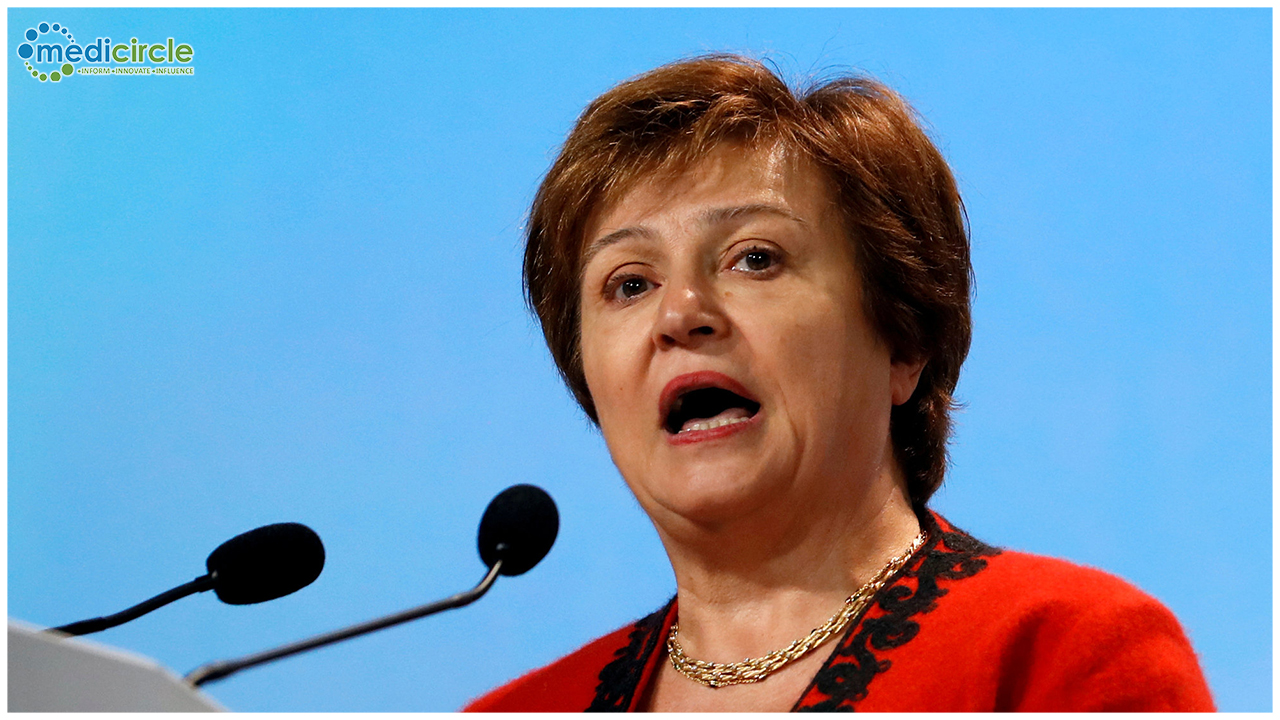The world economy is confronting "serious" monetary harm from the coronavirus pandemic that could be much more exorbitant than in 2009 and will require a remarkable reaction, IMF boss Kristalina Georgieva said Monday.
Georgieva approached propelled economies to offer more help to low salary nations, which face a huge outpouring of capital, and said the IMF stands "prepared to convey all our $1 trillion loaning limit."
As a significant part of the world faces mass shutdowns, Georgieva cautioned account pastors from the Group of 20 countries that the viewpoint for 2020 "is negative - a downturn at any rate as terrible as during the worldwide budgetary emergency or more awful."
The worldwide economy shrunk by 0.6 percent in 2009 because of the 2008 worldwide money related emergency, however, major developing markets like China and India at the time were developing at a quick pace.
Washington: The world economy is confronting "serious" monetary harm from the coronavirus pandemic that could be significantly more expensive than in 2009 and will require an extraordinary reaction, IMF boss Kristalina Georgieva said Monday.
Georgieva approached propelled economies to offer more help to low pay nations, which face a gigantic surge of capital, and "prepared to send all our $1 trillion loaning limit."
As a significant part of the world faces mass shutdowns, Georgieva cautioned fund pastors from the Group of 20 countries that the viewpoint for 2020 "is negative - a downturn at any rate as awful as during the worldwide budgetary emergency or more terrible."
The worldwide economy shrunk by 0.6 percent in 2009 because of the 2008 worldwide money related emergency, yet major developing markets like China and India at the time were developing at a quick rate.
The impact of coronavirus on organizations
Individuals may lose their positions, the same number of organizations rely upon their clients to make benefit and pay their workers.
Conversely, the coronavirus pandemic is causing overall monetary and human savagery, and a few forecasters presently state the downturn could be 1.5 percent.
"The human expenses of the coronavirus pandemic are as of now vast and all nations need to cooperate to secure individuals and breaking point the monetary harm," Georgieva said.
Be that as it may, developing markets and low-pay nations "face critical test" and may require extra monetary help and even obligation alleviation.
"Financial specialists have just expelled $83 billion from developing markets since the start of the emergency, the biggest capital surge at any point recorded," she said.
Almost 80 nations have just mentioned crisis help to manage the infection episode, Georgieva said.

 Advanced economies to provide more support to low-income countries, which face a massive outflow of capital, and "ready to deploy all our $1 trillion lending capacity."
Advanced economies to provide more support to low-income countries, which face a massive outflow of capital, and "ready to deploy all our $1 trillion lending capacity."










.jpg)








.jpeg)

.jpeg)
.jpeg)

.jpeg)


.jpeg)



.jpeg)
.jpeg)
.jpeg)


.jpg)


.jpeg)
.jpeg)